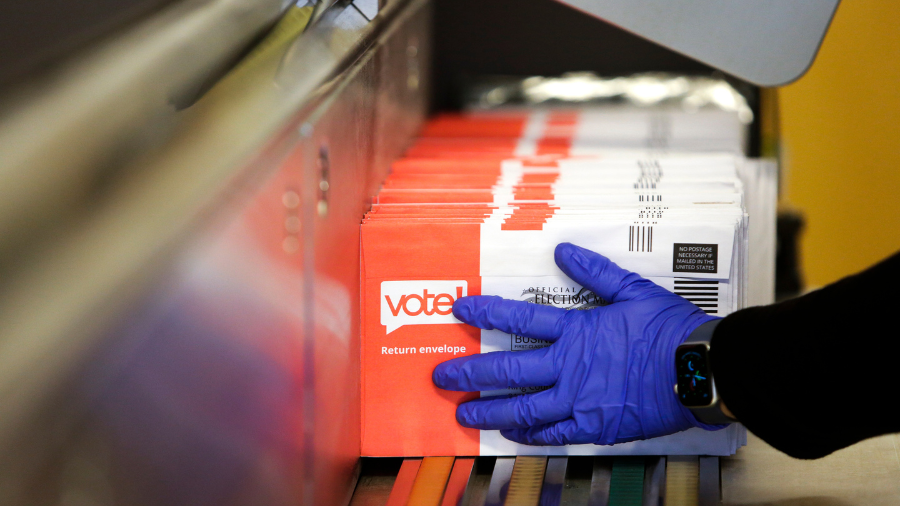How Washington schools are stealing your children’s dreams
Sep 3, 2019, 11:24 AM
For the first time in months, thousands of kids will rub the sleep from their eyes and make their way to school this week. Sadly, thousands of those kids will arrive having had too little sleep because of school start times.
While it’s easy to blame things like screen time, it’s harder to accept the issue is more complicated than simply taking away a phone. First, it’s understanding that sleep is important for all us, including children.
The American Academy of Pediatrics now recognizes insufficient sleep in adolescents as a public health issue and it endorses later school start times, yet most school districts in Western Washington start high schoolers before 8 a.m.
Sleep research
Backed by a grant from the Centers for Disease Control and Prevention, a study by the University of Minnesota surveyed 5,000 high school students from eight high schools across the country from 2010-2013 about sleep. More sleep and later wake-up times were associated with better mental health outcomes.
“For each additional hour of sleep reported, there was a 28 percent reduction in students who said they felt unhappy, sad or depressed. Longer sleep durations were also associated with fewer students reporting use of alcohol, cigarettes and other substances,” according to the study.
Several districts in Minnesota have since adopted later start times.
The same study from the University of Minnesota studied Jackson Hole High School in Wyoming, which pushed its start times from 7:35 a.m. to 8:55 a.m. and saw a 70 percent decrease in the number of teen car crashes. Four high schools in the greater Minneapolis area saw the number of crashes drop 65 percent among 16-18 year old drivers when their start times moved 30 minutes later, according to the Star Tribune.
Changing Circadian Rhythms
Simply going to bed earlier doesn’t necessarily solve the issue. According to the National Sleep Foundation, “The sleep-wake bio-regulatory factors appear to undergo significant changes during adolescence. These changes lay the ground work for the biological night to occur later during the teen years than before.”
In other words, teens are naturally wired to stay up later and wake up later.
If REM sleep is responsible for storing memories, creativity, and balancing mood, as studies such as those published by the National Institute of Neurological Disorder and Stroke, then it must be important to give teens as many opportunities throughout the night and early morning hours to achieve enough REM time before school.
The American Academy of Pediatrics made the same assertion: “On a practical level, this research indicates that the average teenager in today’s society has difficulty falling asleep before 11 p.m. and is best suited to wake at 8 a.m. or later.”
Later start times in Seattle, Anacortes
The Seattle Public Schools adopted later start times in the fall of 2016. High school students don’t have to be in class until 8:45 or 8:55, depending on the school. Dismissal is 3:35 or 3:45.
The teens involved in a 2018 study — by the University of Washington — at two Seattle high schools are now sleeping an average of seven hours and 24 minutes, as compared to six hours and 50 minutes before start times were pushed later. The study also revealed grades improved 4.5 percent. The number of tardies and first-period absences decreased at one of two schools involved in the study.
This year, the Anacortes School District is starting later. Both Anacortes High School and Cap Sante High School will start at 8:05 and release at 2:45. According to the district website, about 200 parents requested the district push start times to 8:30, citing the same statistics released in the American Academy of Pediatrics report.
“Research shows that teenagers require 9.25 hours of sleep for optimal health and that mental wellness directly correlates to optimal sleep,” the district wrote on its website. In addition, it listed the benefits of more well-rested students: increased daily attendance, reduction in tardiness rates, improved grades, higher graduation rates, lower rates of depression/suicidal thoughts, lower rates of car accidents, fewer referrals for disciplinary action, improved standardized test scores, and fewer students visits student health care centers.”
“We’re excited to have worked closely with the community on a student health issue that we believe will have a real impact on our kids’ well-being,” said Dr. Mark Wenzel, Superintendent for the Anacortes School District. “Research clearly shows increased rates of depression and anxiety among teens over the last decade.”
Reasons (excuses) for doing nothing
Lower rates of depression and suicidal thoughts should be reason alone to push for later start times. But the criticism we often hear is that it’ll interfere with sports and other curricular activities, and that it’s a burden to working parents, especially for those students who can’t use the bus system.
First, children themselves are a burden to parents. We’ve known this since the day they were born (maybe even before that). To use that as an excuse not to give your children the best shot at improved mental health and higher grades is selfish.
Either way, teens will likely be left alone at some point during the day. I would argue they’re apt to get into more trouble after school, while parents are still at work.
As for sports and after school activities, yes, moving schedules isn’t easy, but it’s not impossible. If an 8:45 a.m. start time means a 3:35 p.m. dismissal, is 3:45 practice not early enough? Personally, we’re deep into Little League and I know several teams that practice from 5 – 7 p.m. These are 8-year-olds! And if teens are staying up until 11 p.m., they still have four hours.
Dr. Wenzel said Anacortes used surveys from parents and tried to consider all sides before reaching a compromise.
“In the end, we decided to do a 30-35 minute later start because of the logistical challenges with transportation and athletics,” he said. “Our experience/feedback suggested that starting elementary before 8 or ending it after 3:40 was problematic for parents because of safety and family schedules. We tried to work within those parameters.”
It’s not easy to make a change that will affect an entire community, but it’s not impossible — as Seattle and Anacortes have demonstrated. And, as parents, don’t we owe them at least a chance at being well-rested and ready to learn? Otherwise, why are we even doing this?














